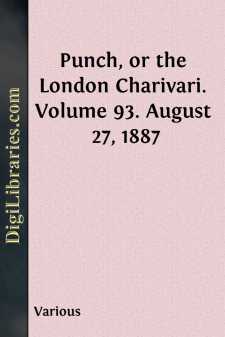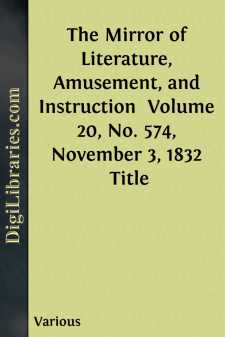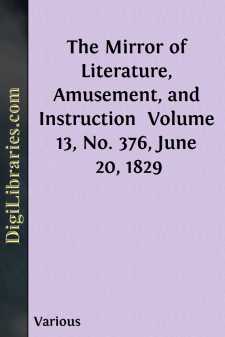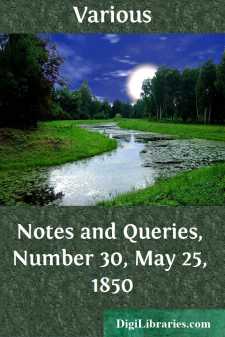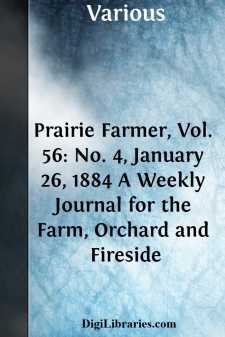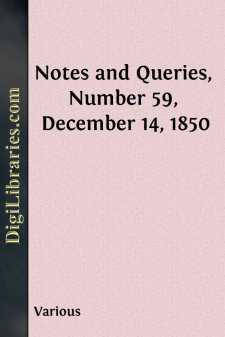Categories
- Antiques & Collectibles 13
- Architecture 36
- Art 48
- Bibles 22
- Biography & Autobiography 815
- Body, Mind & Spirit 144
- Business & Economics 28
- Children's Books 18
- Children's Fiction 14
- Computers 4
- Cooking 94
- Crafts & Hobbies 4
- Drama 346
- Education 58
- Family & Relationships 59
- Fiction 11835
- Games 19
- Gardening 17
- Health & Fitness 34
- History 1378
- House & Home 1
- Humor 147
- Juvenile Fiction 1873
- Juvenile Nonfiction 202
- Language Arts & Disciplines 89
- Law 16
- Literary Collections 686
- Literary Criticism 179
- Mathematics 13
- Medical 41
- Music 40
- Nature 180
- Non-Classifiable 1768
- Performing Arts 7
- Periodicals 1453
- Philosophy 65
- Photography 2
- Poetry 896
- Political Science 203
- Psychology 44
- Reference 154
- Religion 515
- Science 126
- Self-Help 85
- Social Science 83
- Sports & Recreation 34
- Study Aids 3
- Technology & Engineering 60
- Transportation 23
- Travel 463
- True Crime 29
Our website is made possible by displaying online advertisements to our visitors.
Please consider supporting us by disabling your ad blocker.
Punch, or the London Charivari. Volume 93. August 27, 1887
by: Various
Categories:
Description:
Excerpt
It was on a sultry August evening in the memorable year 1887 that a stranger, whose anxious gaze, now and again fixed on the entrance, denoted the fact that he was awaiting the arrival of one of the Members, crossed and re-crossed the pavement of the Hall of the Reform Club with a step that indicated a high condition of nervous trepidation. To the casual observer he might have passed for a solicitor in an extreme state of irritability. The Hall-Porter, however, who had watched him narrowly, had recognised him for who he was. He knew that the restless interloper, who had several times peered into his carpet-bag, and examined specimens of Channel chalk, and had, when he thought no one was looking, hacked a London, Chatham and Dover trains'-bill with his penknife, was no other than the famous Sir Edward Watkin, the then Chairman of the South-Eastern Railway Company. He approached him.
"He won't be long," he said, intuitively guessing the object of his visit, and addressing him kindly. "Ha! hark! Here he comes!" He had scarcely spoken, when a roaring cheer, borne on the sweet evening air, broke the comparative silence of the street outside, and in another minute a surging and struggling mob, who were shouting themselves hoarse, had deposited safely from their shoulders, on the door-step of the Club, their great hero and idol, whom they had thus, as was their wont, nightly carried in triumph from the House.
The ex-Premier, for indeed the buoyant bearing, the high shirt-collar, and the contagious enthusiasm of the new arrival proclaimed his identity at once, dashed up the steps three at a time, and, waving a radiant farewell of thanks to the crowd, bounded into the Hall, where, seeing the stranger, he instantly seized him by the arm, and hurriedly led him to a recess.
"This is very good and genial of you, my dear Sir Edward," he commenced.
The other eyed him cautiously. "You wanted to see me?" he rejoined, sulkily.
"Yes, indeed!" was the brisk reply. "I wished to tell you that, as you had been wicked enough,—ha! ha!—to conceive the idea of uniting England and France by a Tunnel, I had been wicked enough also to determine to help you to do it. Ha! ha!" He laughed long and loud. His interlocutor stared at him for a few moments aghast. Then he clutched him.
"You mean this?" he asked, growing pale with excitement as he spoke. "You mean that you will vote for the Bill?"
"Not only vote for the Bill, but make it a Government measure." As he spoke he was interrupted by a commotion in Pall Mall. Some Junior Members of the Carlton were by way of a practical joke, common enough at this season, dropping a Unionist Liberal out of the first-floor windows into the area, and their merriment over the exploit resounded loudly down the street. The ex-Premier heard it and a wonderful smile played upon his almost beautiful features. "You see, they are going to pieces next door," he added exultingly, "I shall be in in a few weeks, nothing can stop me; and then, I give you my word, you shall have your Tunnel."
The other approached him. There was a curious look in his eye. "You have your price?" he asked. "Name it," he added under his breath, glancing around him furtively to see they were not overheard.
The great Statesman winked knowingly. "Merely the South-Eastern vote," he whispered. "Come, is it a bargain at that?"
"Done!" was the quick rejoinder. They grasped hands.
"Show this gentleman to a four-wheeler," said the ex-Premier.
So they parted. But as the Grand Old Politician turned towards the supper-room there was a fine triumphant lustre beaming in his eye, for he knew, that if he had possibly betrayed his country, he had at least squared the Railway Company. He had made the compact!
VOL. II.—Paid in Full.The country was about to face a great crisis in its history. Yet, as the year 1894 opened, there were little evidences of the approaching storm....


